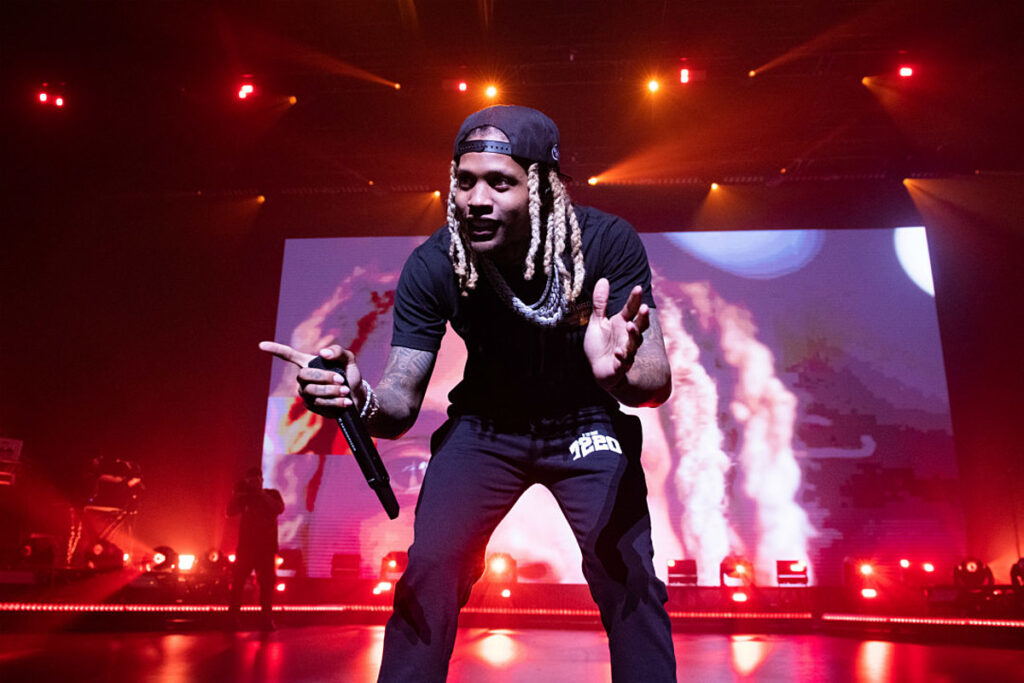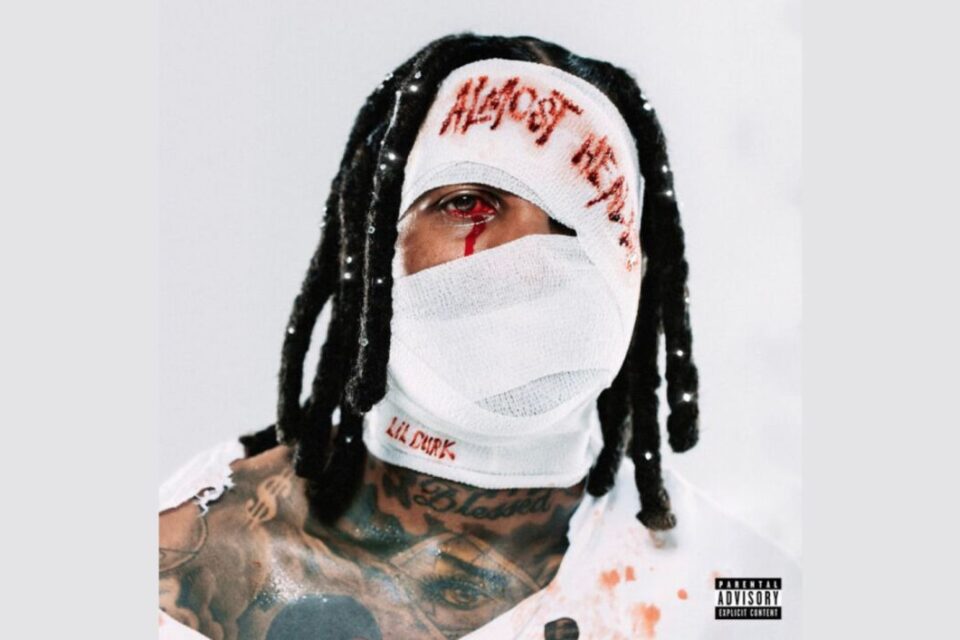It’s not an exaggeration to say that Lil Durk has spent the last decade constantly healing from trauma. Durk’s music has always been rife with amped-up tales that rumble with intense gun-fueled action and the physical and emotional fallout that follows. He was a member of drill’s first wave in Chicago in the early 2010s. But the amount of adversity and loss he’s experienced, like many others in his family, is staggering—to the point where every new project is both a victory lap and a pressure release valve. Life hasn’t slowed down for this dude: he’s one of the world’s most popular and successful rappers, but PTSD from a steady drip of lost family and friends keeps him on edge.
Until his eighth solo album, Almost Healed, the therapeutic benefits of his music were mostly subtextual, relegated to his tone and the sheer weight of his stories. At the very least, it’s never been as heavy-handed as it is in the opening skit “Therapy Session,” in which Alicia Keys asks him with the airy chirp of an overeager guidance counsellor about the deaths of King Von, his brother DThang, and his ongoing beefs with YoungBoy Never Broke Again and Gunna. It’s a cheesy start to an otherwise engaging and disjointed album.
Durk’s words come to life like a comic book splash page, whether he’s mean-mugging his way through the trenches or opening up about his broken heart. With four minutes of traumatic memories, visceral action, and YouTubers on his shitlist, the proper opening track “Pelle Coat” foregrounds those talents. Over Chopsquad DJ’s light keyboards and hi-hats, scenarios emerge: snitches, bodies in the street, guilt over the deaths of Von and his cousin Nuski, Durk’s mother suggesting he relocate to Detroit. But one observation near the beginning of the third verse is a one-two punch: “I send money to funerals/Even though they goin’ to hell for all them niggas they killed/You know I’m part of my brother ‘nem forever ever, I’m goin’ to hell for all them niggas they killed/You know I’m part of my brother ‘nem forever ever, I’m goin’ to hell for all them niggas they killed.

Durk’s admission that he’s essentially damned himself beyond salvation is chilling, given the trail of death he’s seen. It’s a heartbreaking moment in a discography rife with them, the kind that can only come from the darkest corners of experience.
“Pelle Coat” is a fantastic opener, reaching heights that Almost Healed does not reach again for the rest of the film. Every song doesn’t have to break the listener’s heart, but the album alternates between these personal revelations, sappy crossover treacle, and standard drill-and-pain tracks.
Lead single “All My Life” walks a fine line between Lil Baby’s earnest sociopolitical pleas in “The Bigger Picture” and Logic’s goodhearted PSA nonsense in “1-800-273-8255,” complete with a choir of children singing its hook.
That equilibrium is thrown off a few times, most notably on “Stand by Me,” Durk’s second collaboration with country singer (and “reformed” n-word user) Morgan Wallen. Their songs about faceless love interests lack the detail, urgency, and personality that drives Durk’s best songs. Both “All My Life” and “Stand by Me” are clear crossover hits, but at least the former includes some powerful words about the dead rapper media industrial complex from guest J. Cole to sink our teeth into.

The rest of Almost Healed is a collection of mediocre to good Durk cuts from all over the spectrum. The good: Durk and New Orleans upstart Rob49 arguing over a vicious LilJuMadeDaBeat production on “Same Side” and colourful threats to opponents on “300 Urus.” The mediocre: standard collabs with 21 Savage on “War Bout It” and Chief Wuk on “Big Dawg.” “Cross the Globe” features the late Juice WRLD, whose sombre and paranoid verse (“I got the juice, feel like 2Pac/They tryna kill me in the black Beamer like 2Pac”) doesn’t compare to Durk yelling about going deep into some young lady’s guts while screaming “Free Thug!” It’s a jarring distraction rather than a humorous or fun parallel.
That clash of sound and content highlights Almost Healed’s major flaw: it never knows what kind of experience it wants to provide. Its therapy-speak intro and gauze-wrapped cover art indicate that this is Durk’s attempt at a legitimate concept album, wrestling with his demons like a more violent version of Kendrick Lamar’s Mr. Morale & The Big Steppers. But, by the halfway point, it’s just like any other Durk album, with all the sadness, rage, flashiness, and white-knuckle intensity you’d expect. This could all be attributed to portraying Durk’s various personalities, but there’s no narrative thread to guide that thought, so it feels like a thin conceptual veil placed over things we’ve seen and heard before.
There’s not much to distinguish this from 2020’s The Voice or 2022’s 7220, and it lacks the razor-sharp focus that made Just Cause Ya’ll Waited 2 such a brutal and moving listen. Durk’s presence is powerful, and his endurance is inspiring, but his intentions remain murky as ever.
